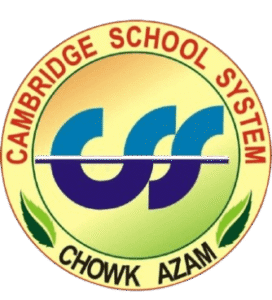Best Future Minds
Education commonly involves a range of institutional activities from the transmission of knowledge by a variety of means like informal domestic Cambridge Education contacts literature periodicals radio cinema and formal schooling Annunzio 1939. It is an undeniable fact that education has a profound impact on the physical mental psychological and social growth of individuals as a supporting Cambridge Learner Profile pillar of national progress. Countries blessed with strong educational systems tend to be positioned as world socioeconomic leaders. Every nation molds its future generations according to its social values and teachings passing on its heritage through education.
But educational models differ across countries characterized by differences like age criteria educational period and grade levels Siddiqui 2007. The South Asian continent experiences huge inequalities in the education Cambridge International Schools sector acknowledging the complex interrelationship between education and life chances. Traditionally the powerful segments of society have excluded some groups from learning opportunities highlighting education crucial role in reducing economic inequalities. Interestingly there exists a glaring gender educational divide Siddiqui 2012.
Education Landscape in Pakistan
Pakistan’s education right from its birth never received much notice from any military or civilian governments. The allocation of funds Cambridge Lower Secondary to the educational sector within Pakistan has been very minimal accounting for less than 2.4% of the GDP. Therefore, Pakistan has the lowest literacy rate and poor quality education compared to its neighbors especially India. The Pakistani education system outside government incompetence has been affected by among other issues multilingualism policy inconsistency experimentation.
The effects of these factors realize themselves in Pakistan poor economic political and social growth. The government administered Curriculum Framework schooling system fails to meet societal requirements because of its perceived mismanagement inadequate funding and poor evaluation. Concerns about the quality of teaching and learning in government schools reverberate across society Government of Punjab 2002. Unfortunately the situation does not improve. Consecutive governments have tried to improve the quality of schooling and education according to international and national standards but these efforts have generated no positive result. This alarming situation points towards an impending Subject Mastery breakdown in the education system Ashraf 1983. The educational system faces a multitude of problems.
Configuration of Pakistan’s Educational System
Structure of Pakistan education is divided into three broad segments of primary education from grade 1 to grade 5 followed Cambridge Upper Secondary by middle education from grade 6 to grade 8 and then secondary education from grade 9 to grade 12. After grade 12 the path leads to higher education. The primary and secondary segments lead to primary and secondary schools. Secondary education grade 9 to 12 is carried out through secondary and higher secondary schools commonly known as colleges.
The bachelor program lasts for 2 to 4 years whereas Post-graduation the master program lasts for two years. After completing the master level M. Phil programs are offered for two years leading towards Ph.D. studies. In particular Assessment Standards, Learning Objectives, Curriculum Framework, Cambridge O Level, Cambridge Primary, disciplines like medicine the program is 5 years and engineering programs take 4 years after the completion of grade 12. These training programs are administered by both private and public universities Cambridge 2007.
Challenges and Concerns within Pakistan’s Educational System
Education a central element directing mental physical ideological and moral development empowers individuals to discover life purpose and satisfy material needs. Yet its relevance has been misinterpreted by Pakistan rulers and policy makers since its inception. Decisions were made based on distorted understanding or individual agendas resulting in an education gap based on socio economic divides. The standard of education has declined due to inefficiency mismanagement favoritism nepotism and corruption.
The existence of ghost salary accounts which locked schools in far-flung locations and empty buildings is proof of Ahmad 2012. Another Emotional Support Services hurdle facing the education sector is the widespread use of various mediums of instruction. From Pakistan inception the elite class has promoted English Medium education while the middle class prefers Urdu Medium schools and the lower class tends to use free madrassa education. This causes a mismatch in opportunities at work since English Medium graduates land high paying jobs at will. This disparity is against the constitutional promise of equality of citizens. Additionally, the hefty price tag of elite institutions makes it difficult for the middle class to access them.
The state sponsored education system as a result of mismanagement and neglect grapples with provinces insufficiently developing their school systems and teachers undergoing neglect Rehman 2004. The quality of Pakistan education is declining because of unresolved language conflicts antiquated teaching methodologies and the inability to confront prevailing societal problems.
Statement of the problem
In the existing education system there is a lack of uniformity in developing national unity among citizens resulting Global Recognition in the development of various education systems that produce individuals differing in ethics views and ideologies. The lackluster education development in India is a result of its caste system forcing children from the lower classes to labor instead of attending school thereby reinforcing caste differences.
This mentality sustains the notion that part of the population should remain
illiterate to cater to the literate population Weiner & Noman 1996. In Pakistan, the feudal nature presents a major hindrance to the promotion of elementary education. A system akin to caste has been developed in the country existing in the form of discrimination among students studying in English medium and Urdu medium schools.
Those who study in English medium schools mostly belong to upper class are regarded as superior and are likely to obtain superior posts like clearing CSS exams. This gap hinders complete comprehension of the problems of students from Urdu medium schools like Atchison and Burn Hall Khan 1997. Access to in-depth educational material throughout Pakistan is still constricted and difficult to spread among the masses. Inefficacy of adopted strategies and failure to meet objectives is also a matter of question. This research therefore seeks to find the reasons why these weaknesses exist. The study will gather School Leadership information from public perceptions and theoretical knowledge within the education system to enlighten us on these issues.
Roles of Education
Historical evidence emphasizes according to Noll J. William 2006 in the book Taking Sides Contrasting Perspectives on Controversial Educational Issues the long-standing focus of education on building character. The teaching of moral education is of greatest importance. An educated mind without ethics might promote a society susceptible to unrest. In today’s world because of the decline in familial relations moral education of individuals becomes essential to maintain human dignity protecting their rights and reversing ominous trends among the youth. Character and morality-based education plays a central role.
Similarly Rao 2000 in the text Education and Morality in India maintains that the basic goal of education is to enable the achievement of one sole human potential. The key purpose is the development of character. Education Parent Engagement, Learning Environment, School Leadership, School Policies, Digital Learning, promotes the interaction between people human society and nature. Ignoring the instruction and adherence to moral and spiritual values among young people would be harmful. The lack of values in state educational policies leads to the development of stressed youth in schools. Morality is the foundation of life in society and education is a tool for society in this regard. Education upholds the existing moral framework in society.
Study Characteristics
Researcher employed the mixed method technique in the research based on nature of data both qualitative and quantitative methods employed for the purpose to gather data. Considering the nature of complexity of subject both methods are employed. Researchers opted for mixed method research based on data nature to develop exhaustive research. Qualitative and quantitative approaches blend to construct this intricate and complex subject education system within Pakistan on strengths of both methods to cover and examine multi dimensions of image.
Quantitative methods initially applied and chosen two universities with taking BS Honors programs at University Private University Public. Both these universities provide undergraduate to post graduate level educational programs. Multistage sampling chosen to sample from both the universities. The Honors Program that is available in University B is more than that of Honors Program of University A so the programs are picked which were conducted by both the universities. 50% of programs were taken from each sample university through simple random sampling. There are 75 departments in total and 36 departments have Honor Programs in University B. There are 22 departments and 19 departments have Honor Programs in University A.
There are 36 honors programs identical for both universities and 6 honors programs 50% chosen as sample from each sample university.
Influence of Politics
The Pakistani education system is highly impacted by politics. In most cases political affiliations rather than merit are responsible Cambridge School Portal for appointments in the education field leading to individuals who mostly give more importance to their political assignments compared to their professional duties. Likewise the entry of politics into the field of education tends to result in the breach of established procedures of appointment. The teachers who are selected on the basis of political affiliations and are incompetent become a long term liability to the economy and an agent for deterioration of the educational system Shah 2003.
In addition to this their unfair promotions and interference in political affairs within educational institutions destabilize the development of education on the basis of quality teaching and learning and they debase the sense of solidarity among teachers. Significantly it is important to point out that teachers who decline to abide by political orders frequently suffer extreme penalties whether social or economic and are sometimes transferred to remote areas. This limitation of teachers professional autonomy has greatly impaired the effectiveness of their work resulting in lowered morale and motivation Saleem 2002.
Conclusion
The study explored the School Policies socio economic conditions affecting students ability to access higher education in Pakistan. The results showed that families having a moderate socio economic status are sponsoring children’s admission to higher education institutions especially in the public sector. Most well educated parents are motivated to educate all their kids understanding the importance of education. In addition to this, this study sought to assess respondents’ perceptions of the Pakistani education system. Unfortunately the research found that as a result of a range of issues the perception of Pakistan’s education system is mediocre and below par based on what was expressed by the respondents who were university Virtual Classrooms students as well as teachers.
The research fully explored students perceptions of education social roles involving a range of necessary social institutions. It emphasized that education has a positive part in individual development and, to some degree, makes an adequate contribution to career development. In relation to the role of the government institution the research recommended an average contribution by the government highlighting a necessity for more practical steps to boost the education sector.
The research indicated a paradoxical position in the family institution.
Though it sponsors and enables children especially sons there is a notable gender inequality with girls experiencing unequal opportunities for education. In spite of growing numbers of women going into higher education and diverse professions male children are still favored for education and involvement in income-generating activities.




